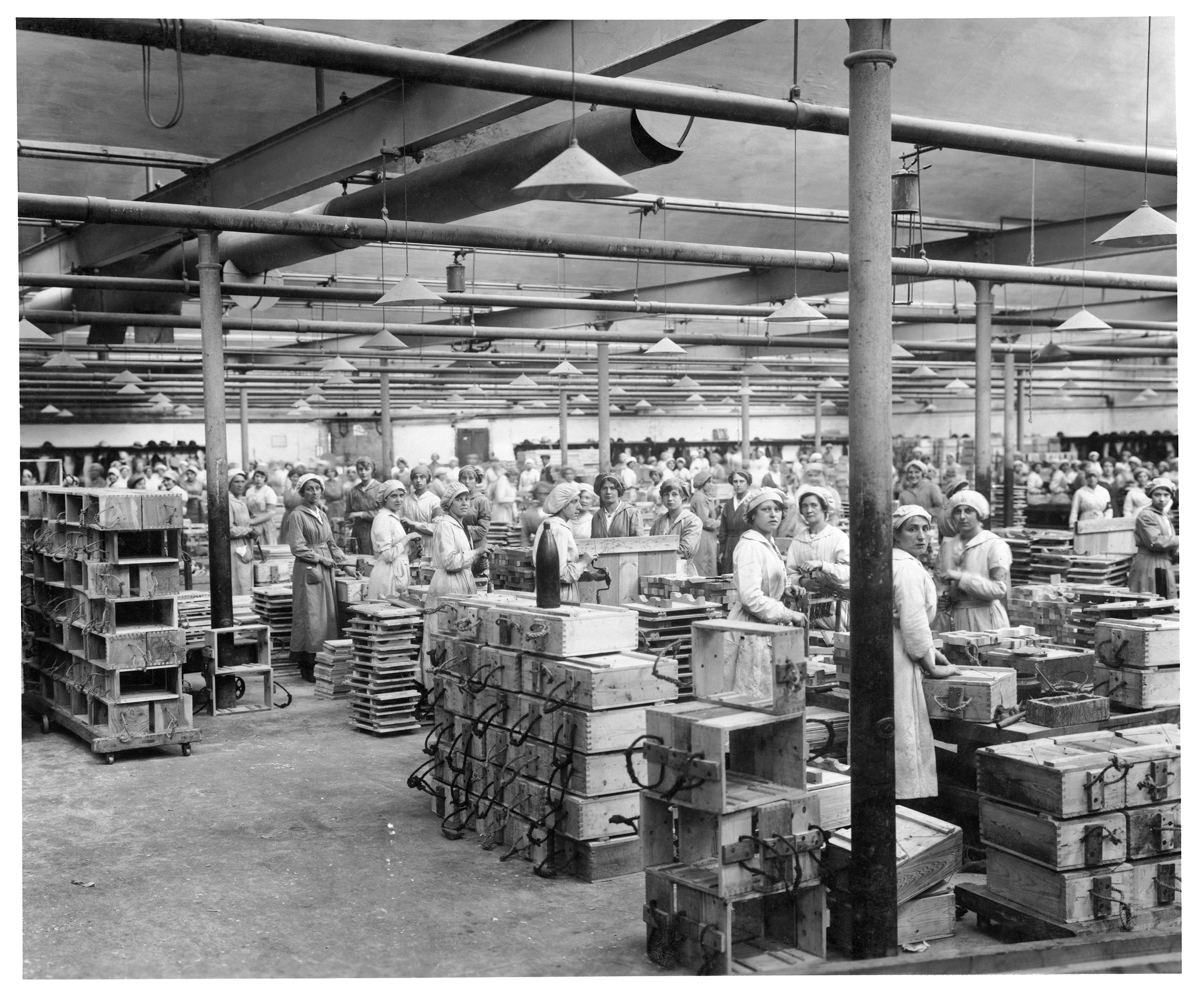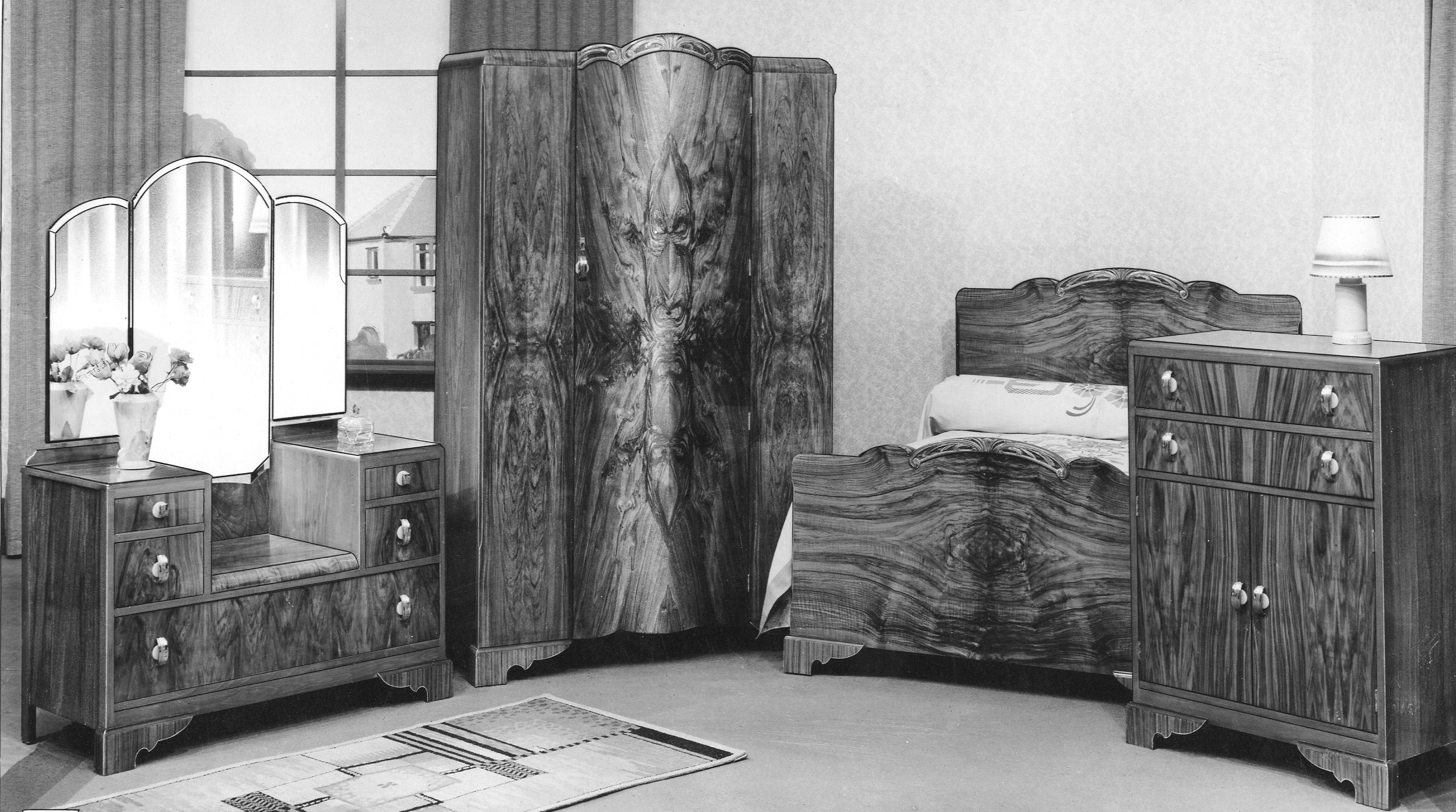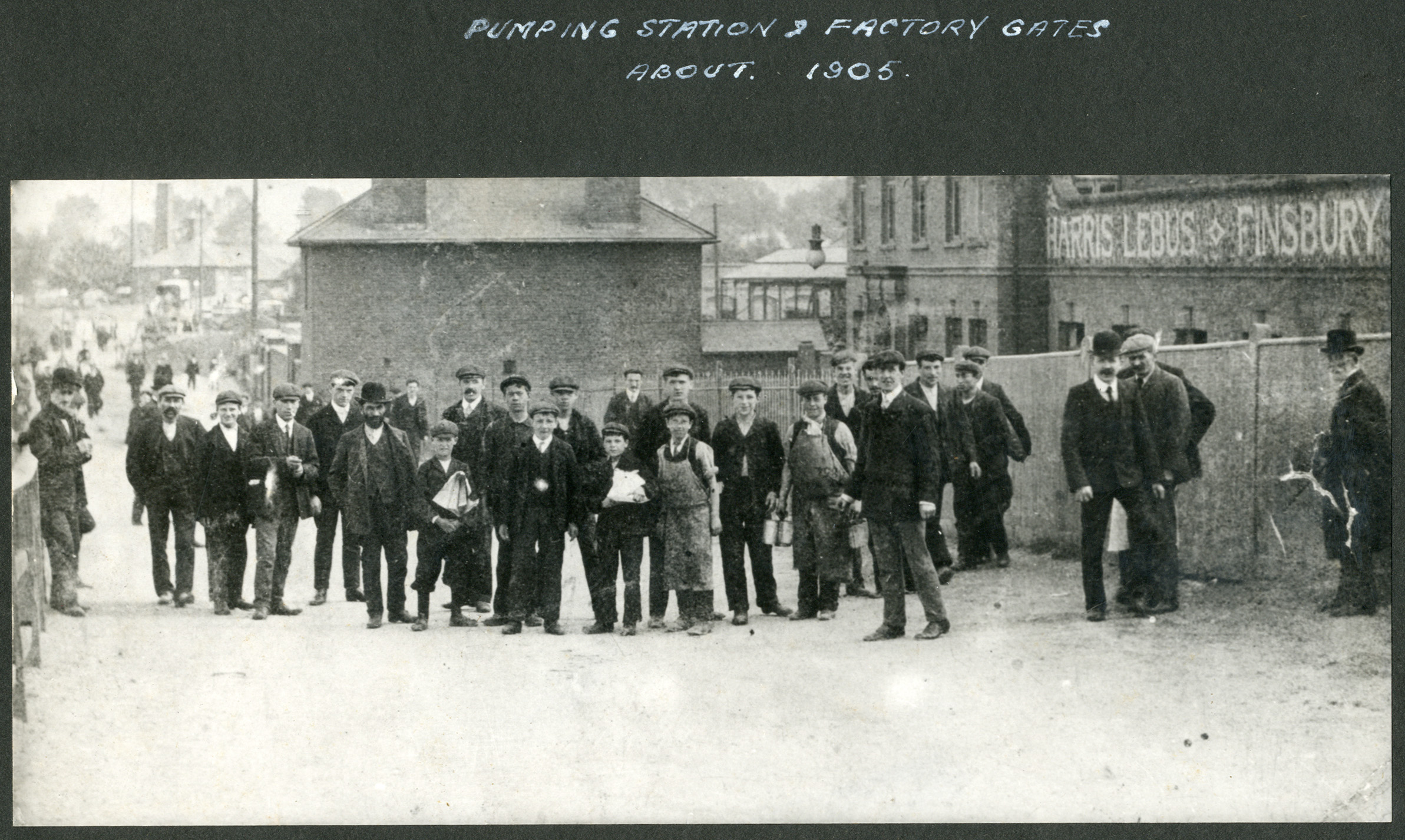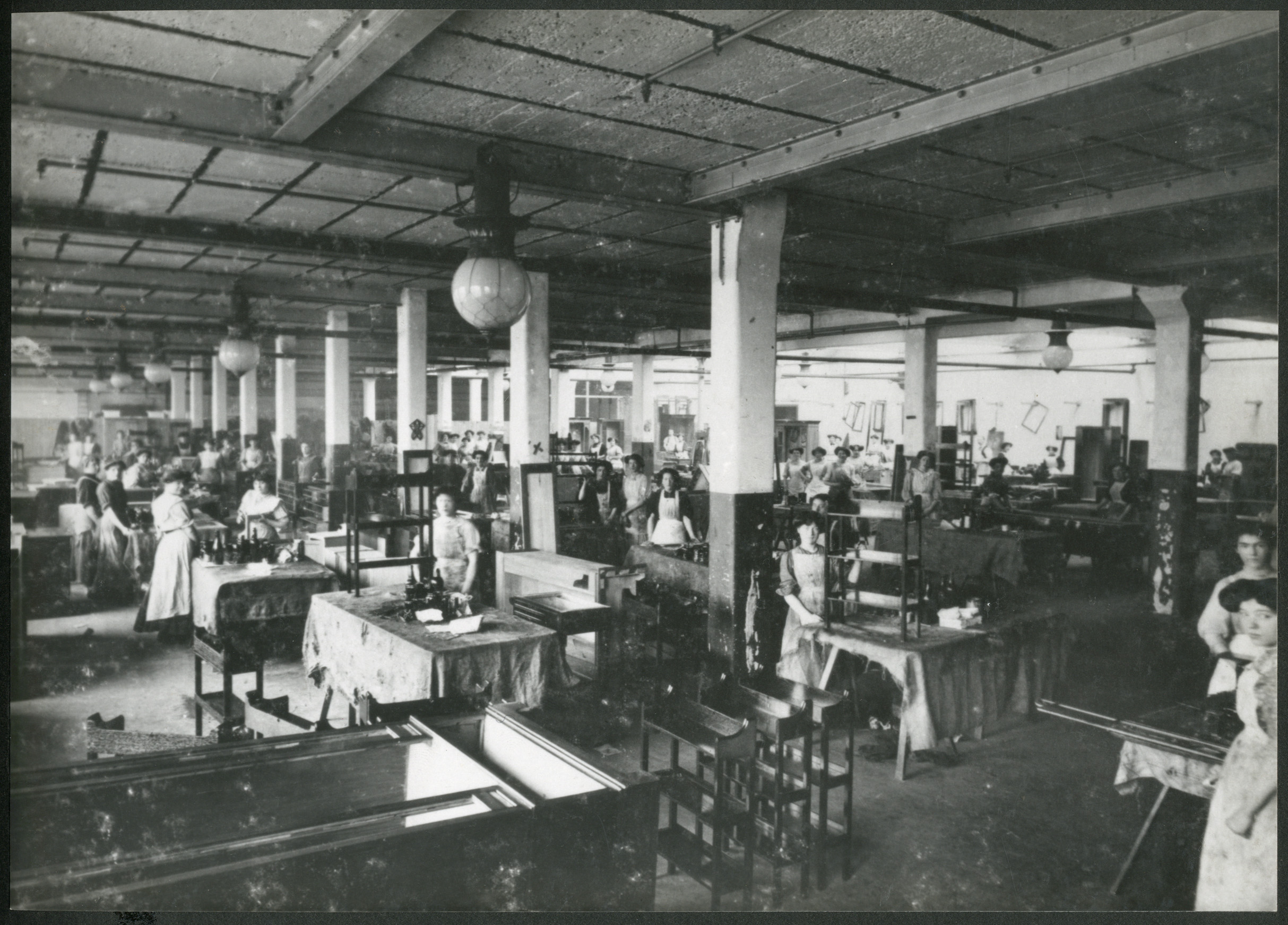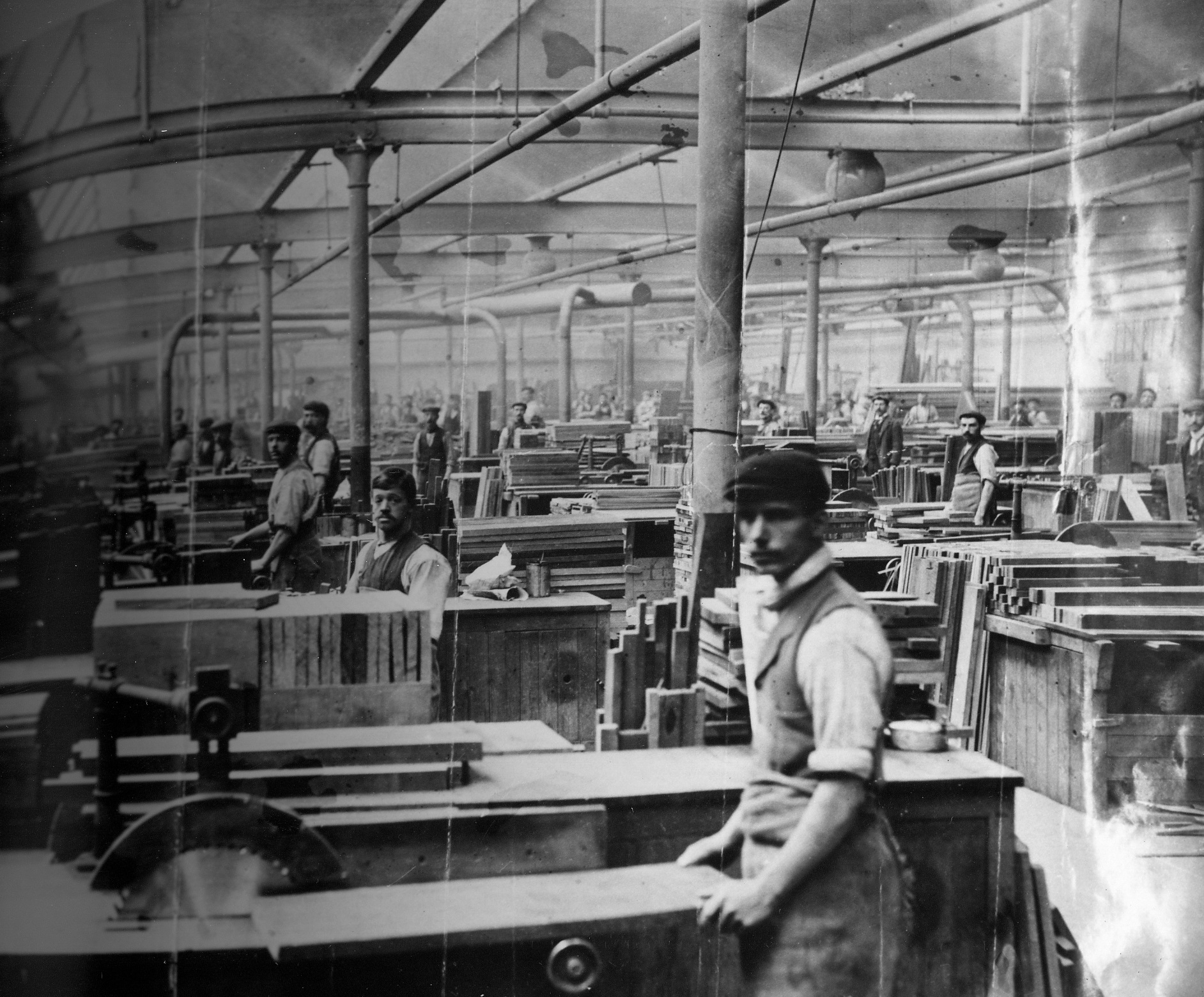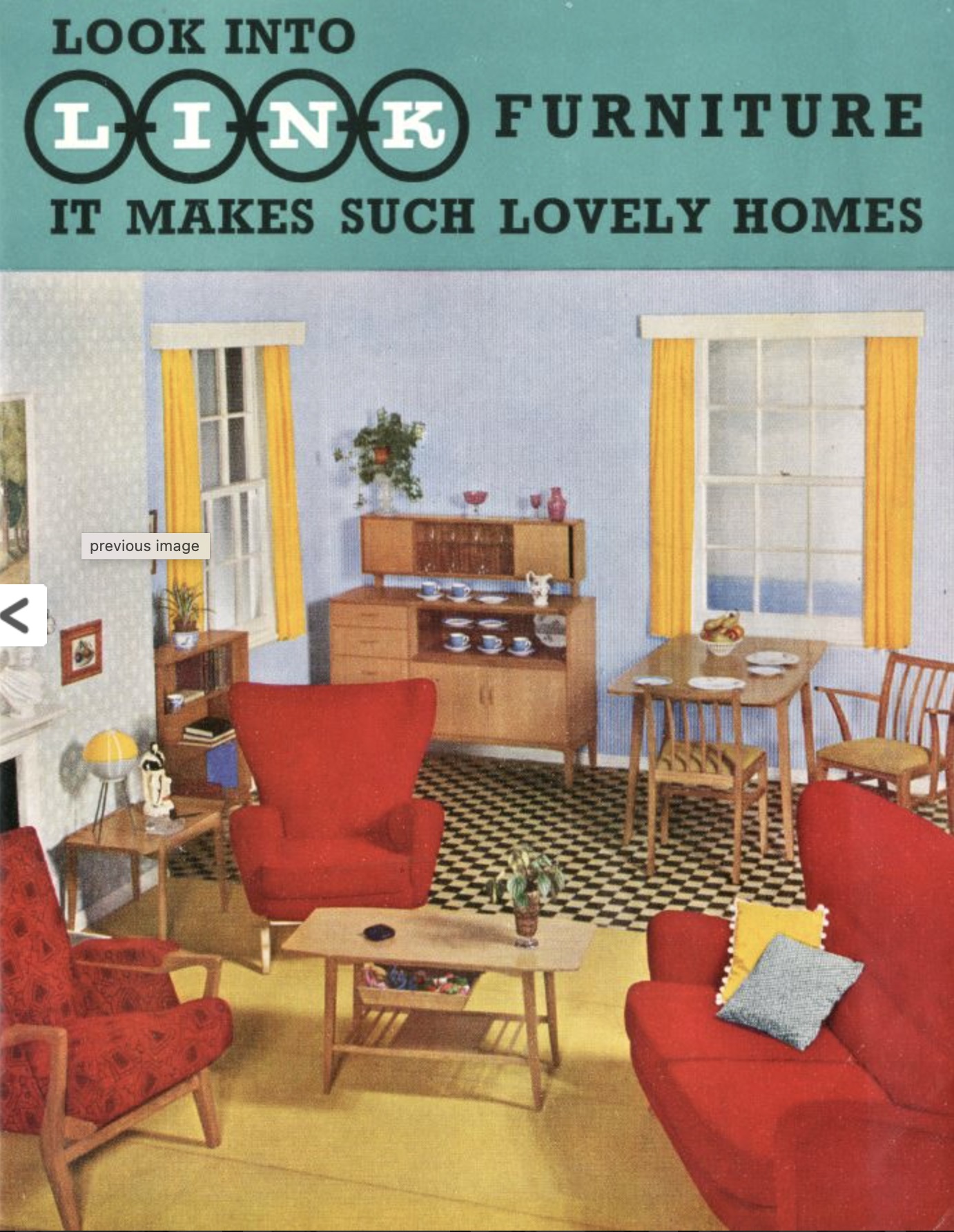Harris Lebus
Louis and Harris Lebus
Born into a Jewish family in Breslau, Germany (now Wroclaw in Poland), Louis Lebus arrived in Hull in the 1840s, establishing himself as a cabinet maker before moving to London and continuing to develop his business. Louis died in 1879, and his eldest son Harris took over the company.
Britain was in the middle of a house-building boom, and, buoyed by soaring demand for furniture to fill these new homes, Harris grew the family business into Britain’s largest furniture maker, overseeing the construction of what was then the world’s largest furniture factory in Tottenham.
The company became famous for its striking Arts-and-Crafts-era pieces during the early 1900s, transitioning into a more Art Deco style during the 1920s and 1930s. The factory also supplied the government with essential supplies during both World Wars.
Harris Lebus passed out of family control in 1947 and, having struggled to maintain its pre-war dominance of the furniture market, it closed in 1967. But it is widely credited with pioneering the mass production of affordable furniture – and its designs remain iconic.
All images courtesy Bruce Castle Museum/Deborah Hedgecock


